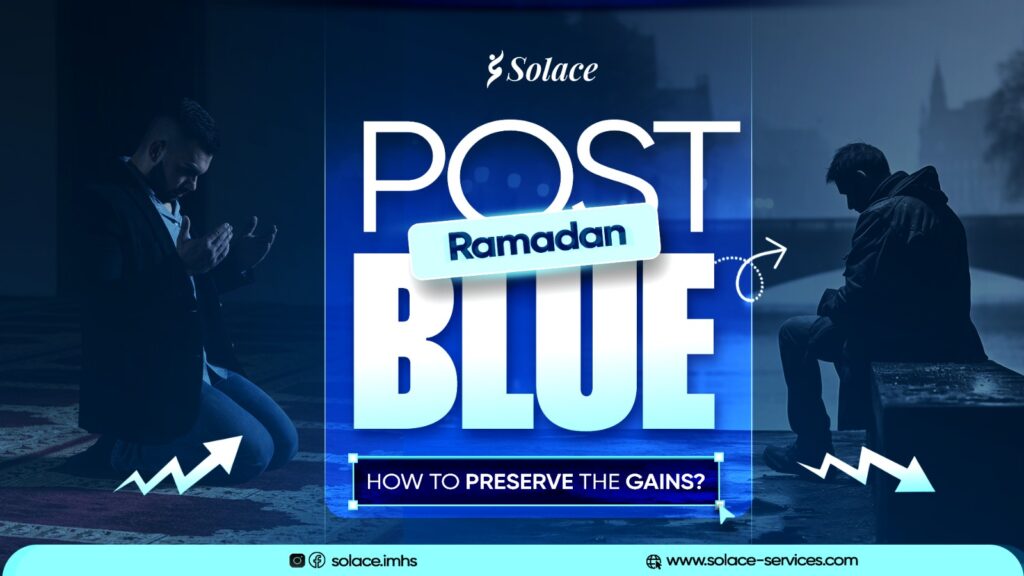Ramadan looks different for everyone, and so does its departure.
For some, it is reflected in sadness, and for others, it is something more.
We miss Ramadan and everything it brought – the family suhoor, the iftar, the community Qiyam, and the overall barakah-filled atmosphere.
As soon as the Eid celebration fades away and we get back to our usual routine, we are left with a strange feeling – A feeling of guilt for being unable to maintain the same spiritual high as we experienced in Ramadan.
We go through this post-Ramadan blues every year, don’t we?
Ever wondered why?
Ramadan is a blessed month.
This is why we can do what we would be unable to do in the other months.
Tried fasting for a month other than Ramadan?
Tried Qiyaam for a month other than Ramadan?
Undoubtedly, most of us will not be able to do so.
Thus, expecting to have the same spiritual high could be a little unrealistic, isn’t it?
What do you think, then, will be a realistic expectation?
What can help you to carry forward the barakah of Ramadan into your life for the rest of the year?
Any guesses?
Allah’s Messenger (ﷺ) said, “Do good deeds properly, sincerely, and moderately and know that your deeds will not make you enter Paradise and that the most beloved deed to Allah is the most regular and constant even if it were little.” (Sahih al-Bukhari)
It is crucial to emphasize the importance of this hadith as it sets the stage for our coming days.
Instead of tripping over ‘what could have been’, we need to understand how to remain consistent throughout the year. This will protect us from inaction due to unhealthy guilt.
So, what can be done?
Identify one habit you focused on during Ramadan and want to incorporate into your life going forward.
A habit whose presence can uplift other areas of your life too.
For example : Starting your day with Fajr and having a post-Fajr routine.
This habit will help you make the most of your mornings, give a structure to your day, make you feel accomplished by the time the world is still asleep, enable you to follow the post-Fajr sunnah, motivate you to go to bed on time, regulate your sleep schedule, and bring your life back on fitrah (natural Allah-given rythm also known as circadian rythm).
This is what we call the domino effect of a keystone habit. You can learn more about it in our Islam & Psychology webinar [https://youtube.com/live/qQPPxTokNMs?]
This domino effect can apply to any other deed – from adding nawafil to your daily prayers, adding dhikr after every Salah, or forgiving others before you sleep.
But here is the catch!
You will take considerable time to develop this keystone habit.
And most likely, you will fall off the wagon multiple times.
But remember that every relapse is feedback, and feedback is not failure.
We are blessed that our Lord does not judge us by outcomes but by intentions.
No matter how many times you fall, as long as you are doing it for the sake of Allah SWT, His help will find you!
Let us revise and amplify our intentions, make dua to Allah SWT to keep us steadfast till we meet Him, and continue to strive in His path till our last day, ameen.



Leave a Reply